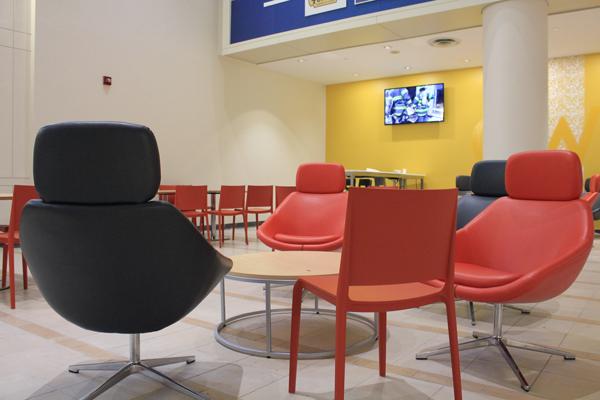All furniture in the newly renovated Shenkman Hall food court is accounted for, one week after the building’s property manager asked residents to return missing chairs.
Paris Rossiter, a property manager who oversees the residence hall, sent an email to residents Sept. 2 asking them to return any chairs they had taken. He said in the email that although students are usually charged a fine for removing communal furniture, he would waive the fee if students returned the chairs.
University officials declined to say how much the fine usually is, how many chairs were taken or how much the chairs are worth.
Brett Zongker, a University spokesman, said in an email that a policy requiring communal furniture to remain in place was designed to make sure that public spaces are fully furnished for students to use and to prevent injuries people could suffer when moving the furniture.
Zongker said that the renovations to the food court, which took place over the summer, included replacing all the furnishings with 30 new tables and more than 80 chairs.
In 2010, security equipment was installed in the building to monitor property destruction.
A University resident adviser, who spoke on the condition of anonymity because the advisers are not permitted to speak to the media, said students commonly take furniture from shared spaces. The RA said that furniture removal can disrupt community spaces in residence halls.
“People don’t really want to go to a place to study or to hang out if there’s nowhere to sit or nowhere to relax,” the RA said. “If you’re just standing in a room with four walls and no furniture, there’s not a heck of a lot you can accomplish.”
This can be especially difficult for freshmen, the RA said, because they are more likely than upperclassmen to spend time in communal areas.
The RA said that in an upperclassmen residence hall, like Shenkman Hall, students tend to care less about the state of their communal areas, including missing furniture, because they spend less time in the locations. Juniors and seniors are also less likely to tell friends who steal furniture to return it, the RA added.
“Freshman might spend more time in the common areas, but they also might hold each other more accountable,” the RA said.







